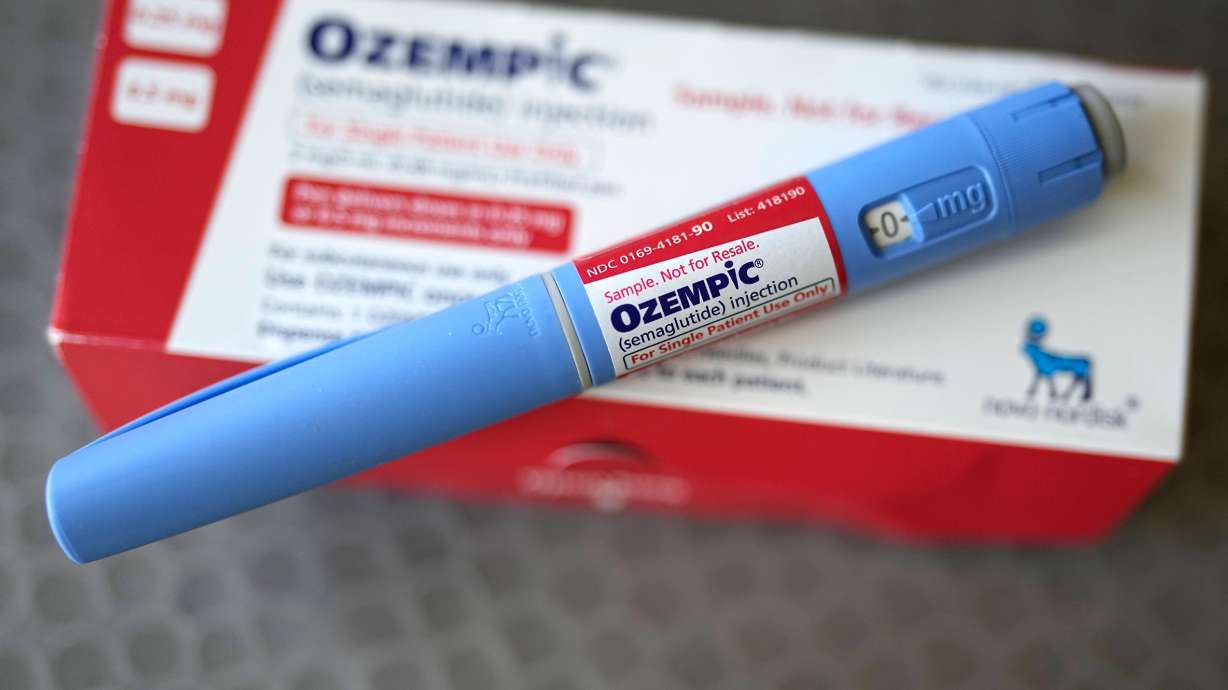Estimated read time: 4-5 minutes
- Weight loss drugs like Ozempic are linked to reduced risks of several conditions.
- However, they may increase risks of issues like kidney problems and gastrointestinal disturbances.
- The study emphasizes monitoring due to potential serious side effects despite benefits.
SALT LAKE CITY — Weight loss drugs like Ozempic and Wegovy have been tied in a large, national study to a drop in the risk of developing dozens of health conditions. But the semaglutide-like drugs also appear to increase the risk of many others.
Glucagon-like peptide 1 receptor agonists (called simply GLP-1RAs), the class to which those drugs and others including Mounjaro and Zepbound belong, have become the darling of the weight loss crowd, with an array of celebrity endorsements that hail the help they provide for both Type 2 diabetes and obesity. And Wegovy has been approved by the U.S. Food and Drug Administration for use in people with heart disease.
As a Live Science report noted, there's evidence to suggest that the class of drugs may help prevent the onset of Alzheimer's disease and prove useful in managing substance use disorders.
But there are concerns, as well, including about gastrointestinal and kidney problems, among others.
To sort it out, researchers from the Washington University School of Medicine in St. Louis and the Veteran Affairs St. Louis Health Care System looked at the impact of the GLP-1RAs on 215,000 people with Type 2 diabetes, tracking their outcomes for four years and comparing them to a control group of more than 1 million people who received different anti-diabetes drugs. It's the largest study undertaken on the GLP-1RAs, the data taken from the U.S. Department of Veteran Affairs.
It's important to note they were compared to other Type 2 diabetes treatments specifically.
The findings were published in the journal Nature Medicine Jan. 20.
Benefits of the drugs
Many of the beneficial effects could be because of the positives of losing weight or the reduction of inflammation, nephrologist and clinical epidemiologist Dr. Ziyad Al-Aly, a study co-author and assistant professor of medicine at Washington University, said during a recent news conference.
In a Washington University news release, he said that "our approach has allowed us to build a comprehensive atlas mapping the associations of GLP-1RA spanning all organ systems. The study's results provide insights into some known and previously unrecognized benefits and risks of GLP-1RA that may be useful to inform clinical care and guide research agendas."
Compared to the controls, there appeared to be countable benefits, including lower risk of:
- Heart attack
- Deep vein thrombosis
- Alzheimer's disease
- Psychotic disorders
- Alcohol and cannabis use disorders
- Addiction disorders in general
- Bacterial infections
- Suicidal ideation and self-harm
- Bulimia
Al-Aly said the benefits were generally modest, amounting to a 10-20% reduction for most conditions.
"However, the modest effect does not negate the potential value of these drugs, especially for conditions where few effective treatment options exist, for example, dementia," he said in the news release. "This may also imply that these drugs are most beneficial when used in conjunction with other interventions, such as lifestyle changes or other medications."
Risks of the drugs
But the list of conditions that increased with use of the drugs was not insignificant. The risks include:
- Low blood pressure
- Fainting
- Headaches
- Sleep disturbances
- Kidney stones and inflammation in the kidneys
- Bone or joint pain, including arthritis
- Pancreatitis
- Nausea
- Vomiting
- Diarrhea
- Rare cases led to paralysis of the stomach
Al-Aly said that the adverse impact on the pancreas and kidneys is uncommon but can be very serious, so those taking the drug must be monitored for signs of pancreatitis or lowered kidney function, which can occur without symptoms until the problem is serious.
"GLP-1RA drugs can have broad health benefits," he said. "However, they are not without risks. Our findings underscore the possibility for wider applications for these medications but also highlight important risks that should be carefully monitored in people taking these drugs."
Al-Aly told the BBC that the drugs "seem to suppress reward mechanisms" within the brain, reducing "the urge to seek out alcohol, to seek out tobacco, to seek out gambling." But the article added that "meanwhile, lower levels of inflammation, the alarm bell of the immune system, could have a wide range of health impacts."
Whether the drugs are a boon or bane could depend on the conditions you are naturally at risk for. If weight isn't affecting health, the risk might be greater than the benefit, he told the BBC.
The researchers note limitations to the study, including that most of the veterans are white males, which means the study didn't chime in on what the BBC calls "the anecdotal phenomenon of improved fertility" and the births being referred to as "Ozempic babies." And it's not clear if there are other reasons people were prescribed the GLP-1ARs instead of other weight-loss drugs. That might indicate confounding factors that could account for the findings.










